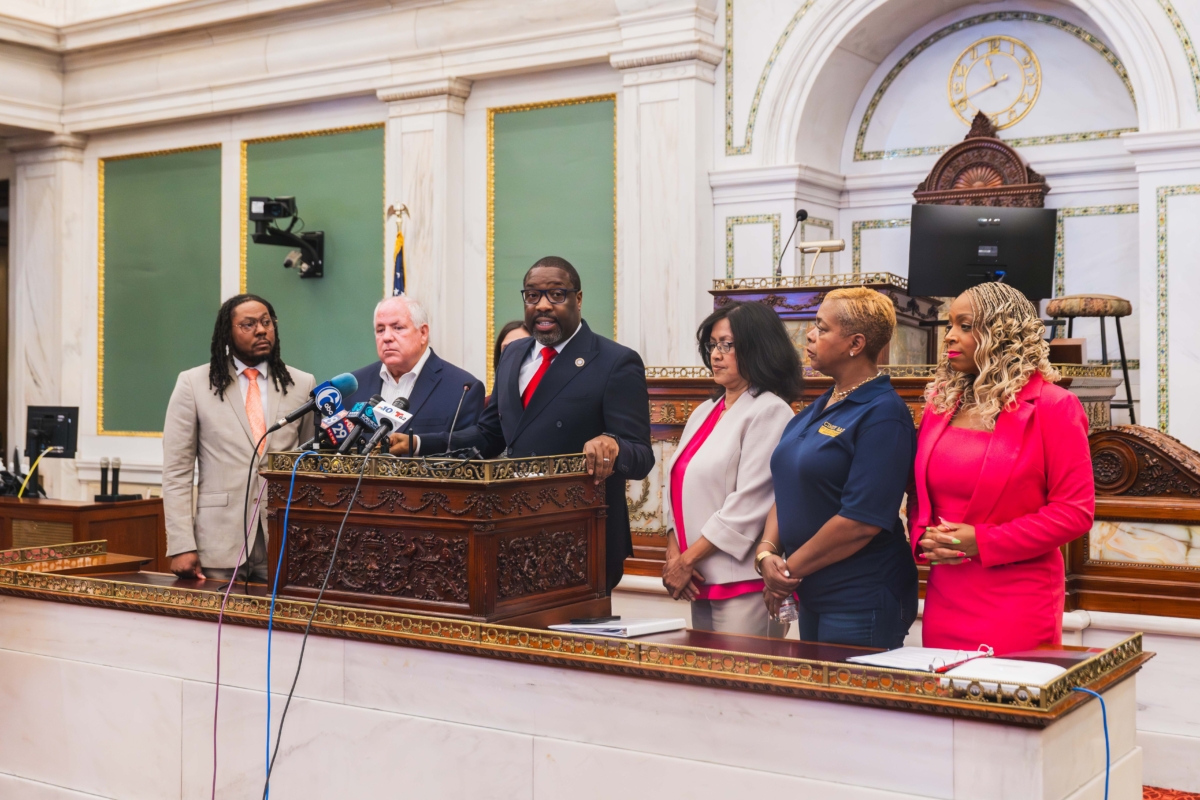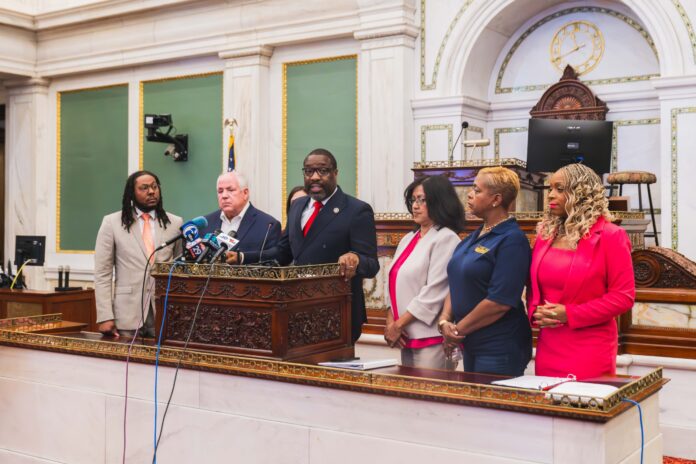City Council President Kenyatta Johnson and Councilman Mike Driscoll, chairman of Council’s Transportation Committee, issued the following statement on SEPTA’s funding crisis:
“Philadelphia and the surrounding region are in crisis that no short-term Commonwealth of Pennsylvania budget patch can solve. SEPTA is more than just a transit system; it is the lifeline of our region. Without a long-term, sustainable funding solution, the very foundation of our economy, our schools, and our communities is at risk.
“Students rely on SEPTA every day to get to class, college campuses, and after-school jobs. Seniors depend on buses, trolleys, and trains to reach medical appointments, grocery stores, and community centers, maintaining their independence and quality of life. And our workforce, the engine that drives the regional economy, depends on reliable public transit to get to jobs across Philadelphia, the suburbs, and beyond. When SEPTA falters, the ripple effect hits every household, every business, and every neighborhood.
“The Pennsylvania General Assembly has not agreed on new mass transit funding, so SEPTA had to implement a 20% service cut on the entire system starting Sunday, August 24. The cuts resulted in the immediate elimination of 32 bus routes, the shortening of 16 bus routes and a reduction of service on the Market-Frankford Line, Broad Street Line and the Regional Rail lines, all of which are setting off a chain of negative consequences for residents and businesses, the economy of the Greater Philadelphia region, and the commonwealth’s future tax revenues.
“Since 2024, Philadelphia City Councilmembers have stood with SEPTA leadership and transit advocates calling on the Pennsylvania State House and Senate to approve Pennsylvania Gov. Josh Shapiro’s proposal to increase mass transit statewide.
“Our Commonwealth needs a steady, predictable funding source from the state, or devastating cuts to those systems were inevitable.
“City Councilmembers urge the leadership of both the Pennsylvania House and Senate to stay in Harrisburg for as long as it takes to create a new Fiscal Year 2026 Commonwealth of Pennsylvania operating budget that funds state operations and mass transit. A final state budget is way past its mandated July 1 deadline.
“Elected officials in Philadelphia are doing our part to help SEPTA. As part of the City’s Fiscal Year 2026 Operating Budget, which started on July 1, our body appropriated $135 million in operating subsidy. The budget gives SEPTA a total of $716 million in operating support for Fiscal Year 2026 through Fiscal Year 2030 for SEPTA in addition to a total of $76 million in capital support from Fiscal Year 2026 through Fiscal Year 2031.
“The excitement of 2026, with Philadelphia hosting World Cup soccer matches and the country’s 250th birthday celebration, is on the horizon. If SEPTA is underfunded, unreliable, or forced to cut service, as a City, we will not be ready for 2026. More importantly, we will fail the everyday riders who depend on transit not just for special occasions, but for the basic building blocks of daily life.
“This is not about partisan talking points or political grandstanding. It is about leadership, vision, and the will to invest in the future of our region. A patchwork of temporary fixes will only deepen the instability. What we need is a long-term funding solution — one that recognizes SEPTA as critical infrastructure, just as essential as our highways, bridges, and utilities.
“If we want Philadelphia to remain competitive, inclusive, and connected, we must commit now to fully funding SEPTA. Anything less is a disservice to our students, our seniors, our workforce, and generations to come.
“We will not see SEPTA die on our watch.” ••






